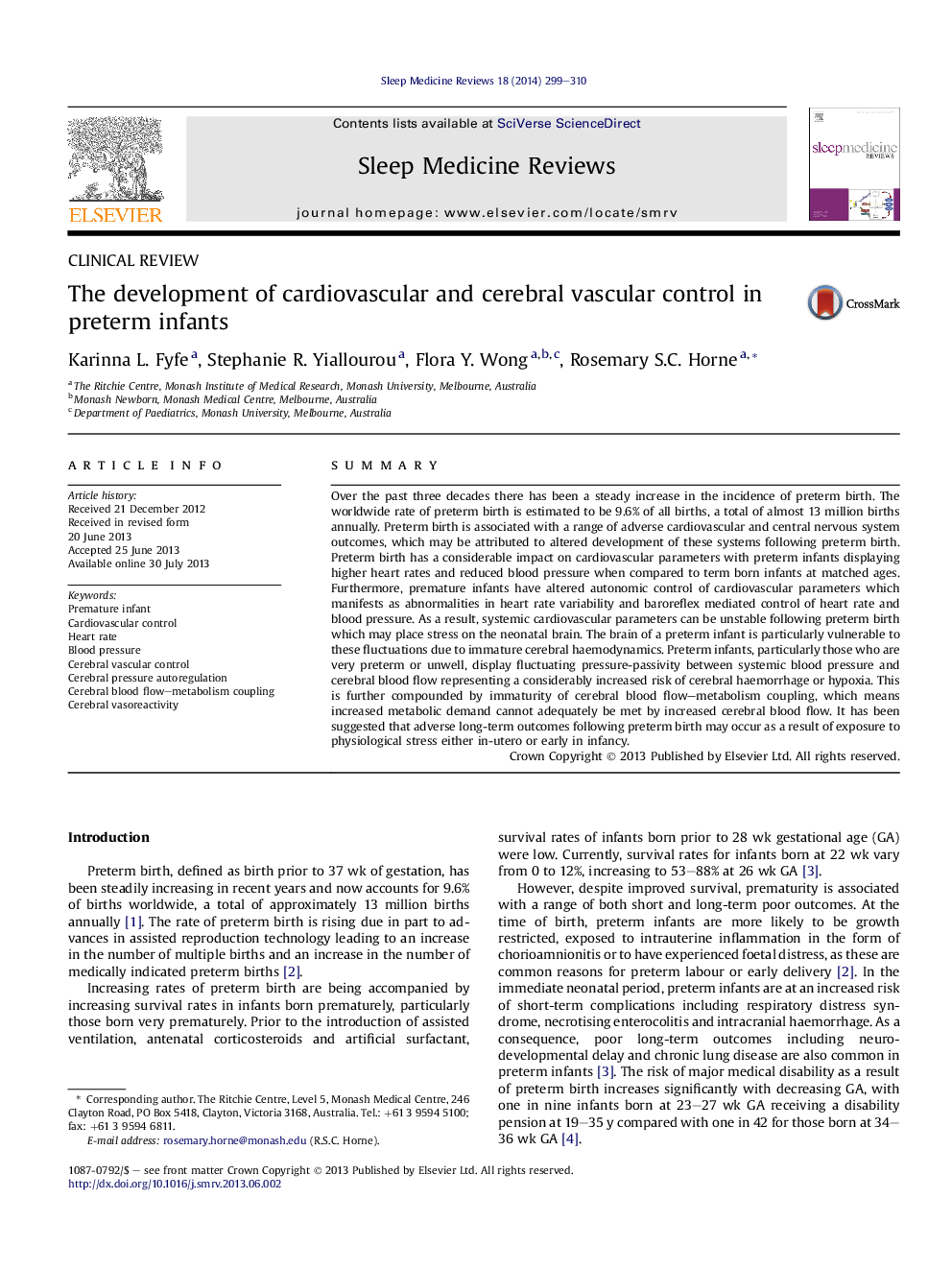| کد مقاله | کد نشریه | سال انتشار | مقاله انگلیسی | نسخه تمام متن |
|---|---|---|---|---|
| 3091390 | 1190403 | 2014 | 12 صفحه PDF | دانلود رایگان |
SummaryOver the past three decades there has been a steady increase in the incidence of preterm birth. The worldwide rate of preterm birth is estimated to be 9.6% of all births, a total of almost 13 million births annually. Preterm birth is associated with a range of adverse cardiovascular and central nervous system outcomes, which may be attributed to altered development of these systems following preterm birth. Preterm birth has a considerable impact on cardiovascular parameters with preterm infants displaying higher heart rates and reduced blood pressure when compared to term born infants at matched ages. Furthermore, premature infants have altered autonomic control of cardiovascular parameters which manifests as abnormalities in heart rate variability and baroreflex mediated control of heart rate and blood pressure. As a result, systemic cardiovascular parameters can be unstable following preterm birth which may place stress on the neonatal brain. The brain of a preterm infant is particularly vulnerable to these fluctuations due to immature cerebral haemodynamics. Preterm infants, particularly those who are very preterm or unwell, display fluctuating pressure-passivity between systemic blood pressure and cerebral blood flow representing a considerably increased risk of cerebral haemorrhage or hypoxia. This is further compounded by immaturity of cerebral blood flow–metabolism coupling, which means increased metabolic demand cannot adequately be met by increased cerebral blood flow. It has been suggested that adverse long-term outcomes following preterm birth may occur as a result of exposure to physiological stress either in-utero or early in infancy.
Journal: Sleep Medicine Reviews - Volume 18, Issue 4, August 2014, Pages 299–310
